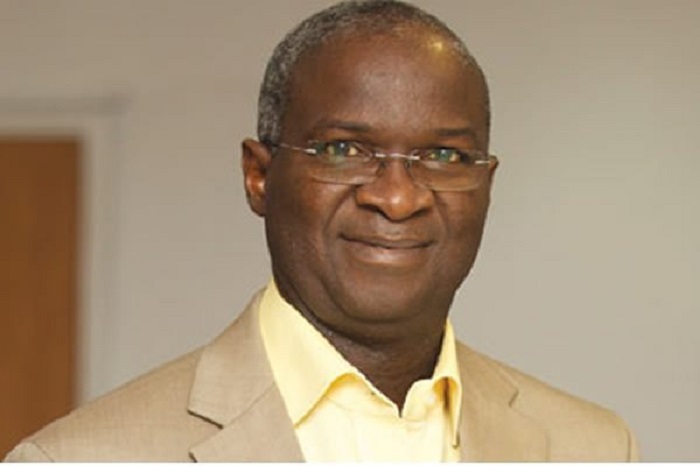Avoiding pitfalls from concession of 10 highways
The Minister of Works, Mr Babatunde Fashola, unveiled the government’s plans to put 10 highways on concession to private organisations who will erect facilities to ensure users pay toll tax. The roads are Benin-Asaba, Abuja-Lokoja, Kaduna-Kano, Onitsha-Owerri-Aba, Shagamu-Benin, Abuja-Keffi-Akwanga, Kano-Maiduguri, Lokoja-Benin, Enugu-Port Harcourt, and Ilorin-Jebba. The minister disclosed this new arrangement to lawmakers last week […]

Babatunde Raji Fashola
The Minister of Works, Mr Babatunde Fashola, unveiled the government’s plans to put 10 highways on concession to private organisations who will erect facilities to ensure users pay toll tax.
The roads are Benin-Asaba, Abuja-Lokoja, Kaduna-Kano, Onitsha-Owerri-Aba, Shagamu-Benin, Abuja-Keffi-Akwanga, Kano-Maiduguri, Lokoja-Benin, Enugu-Port Harcourt, and Ilorin-Jebba.
The minister disclosed this new arrangement to lawmakers last week while presenting the concept entitled: “Highway Development and Management Initiative.” He said the deal would attract a capital investment of N163.32bn at a cost of about N16bn for each of the 10 roads and that some 23,322 jobs would be created. Under this arrangement, the government will enter into contract agreements with private investors on these road networks, giving concessionaires the powers to collect toll on the roads at rates to be approved by the State. In return for the toll collected, the concessionaires will be obliged to finance, build, maintain and operate the highways.
Handing over our highways to private concerns has several advantages. On the surface, it would guarantee proper maintenance of these roads, some of which have been in deplorable condition for several years now. It would also enable their upgrade during the concession period, as the concessionaire would be under obligation to commit both human and monetary resources to them.
In developed countries, roads that are on concession enjoy excellent safety records. Also, these roads make a neutral impact on public accounts as the government may no longer make annual budgetary allocations on the highways. If construction work would be made on them, it would be speedily accomplished as the government’s bureaucracy would be eliminated in the process of decision-making and release of funds. In several countries in Europe, major highways are run on concession agreements.
This would not be the first time that government would place toll tax on Nigerian roads. Nigerians paid toll tax on several highways until a dramatic incident about the tax occurred in 2003 when Obasanjo increased the pump price from N26 to N42 per litre. At that time, the Organised Labour protested the increase, but the government quickly dismantled toll gates, saying the money to be realised from them were already factored into the pump prices. Most of the roads on which Nigerians paid toll tax were not properly maintained, so the money was funneled into the pockets of greedy individuals. Again, toll taxes from increased pump price of petroleum products never made any genuine impact on our roads, but no one has been held accountable for this failure. Our major roads have become deathtraps.
Nigerians have faced a series of disappointments from government policies, which looked robust on paper but were poorly executed. For instance, the privatisation policy of government did not bring about the promised vibrant economy. Most buyers of the public enterprises did not make capital investment that would boost their operation; hence many are now moribund. Also, during the unbundling of the old National Electric Power Authority (NEPA), hopes of improved electricity supply were raised, only to be dashed by the inability of Discos, Gencos, and even the TCN to live up to their agreements.
Several reasons are adduced for the non-performance of privatised public enterprises. We call on the government to ensure that the concession of our highways is not to party loyalists or surrogates of government officials whose interest is to reap the initial benefits and dump such contracts midway. It is for this reason that Discos and Gencos have failed Nigerians. For this project to succeed, an independent regulatory agency must be put in place; an agency that can call concessionaires to order when they err. Without an active and independent regulator, concessionaires could get away with murder. Government, on its part, must live up to its responsibilities on the projects to ensure concessionaires are not frustrated. For instance, the Bagana-Guto Bridge and Access Road concession project suffered a serious setback due to political interests.
Nigerians would not reap the benefits of the planned concession of our highways if politics, corruption, conflict of interest and nepotism are permitted to contaminate the agreement.
